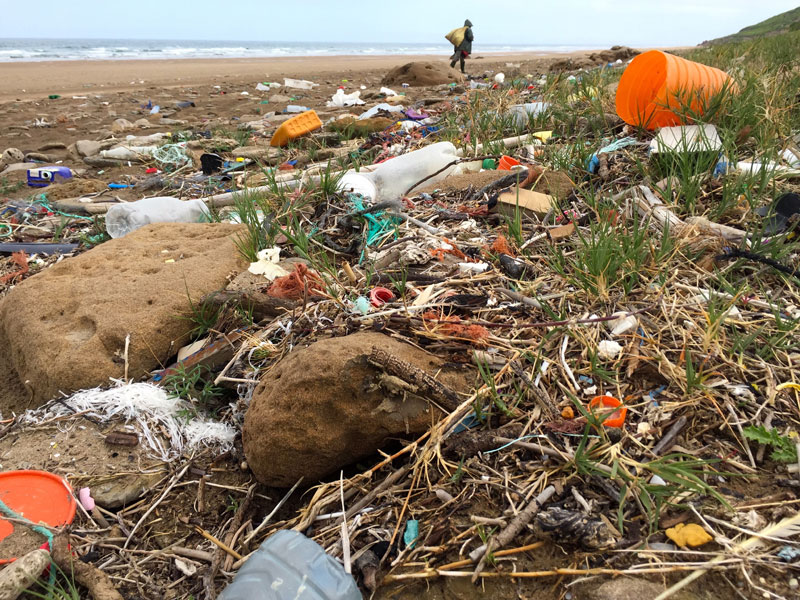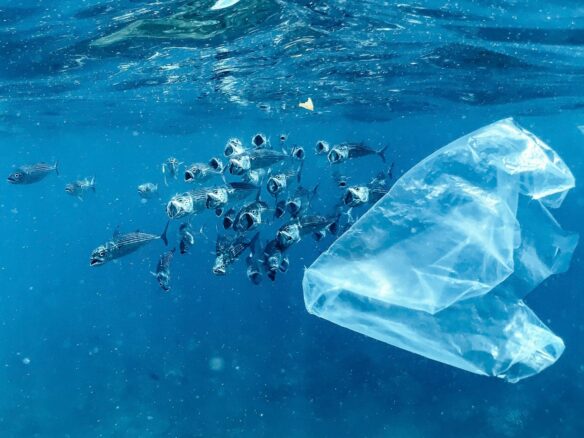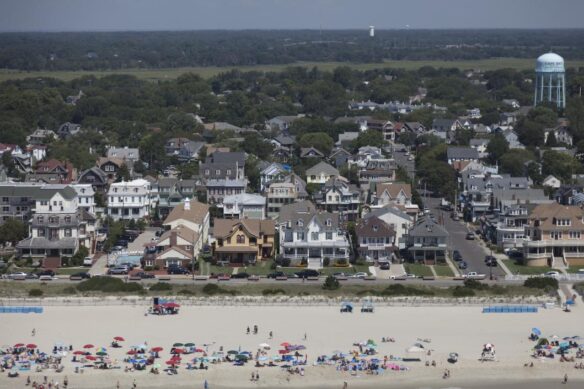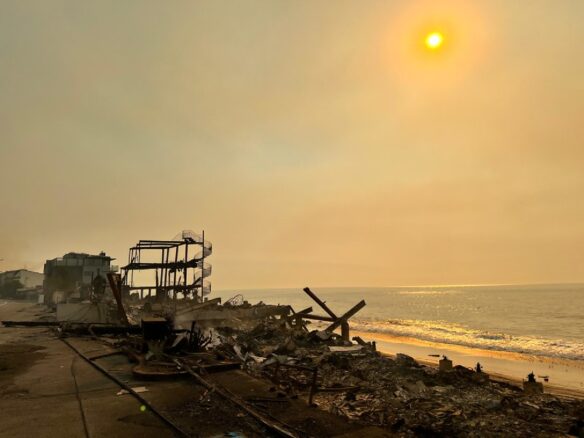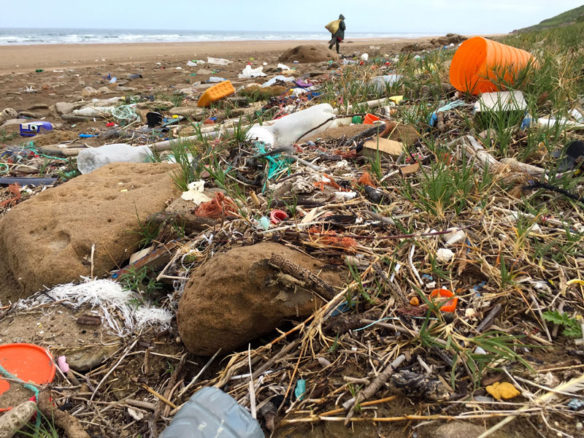
“The unprecedented plastic waste tide plaguing our oceans and shores, can become as limited as our chosen relationship with plastics, which involves a dramatic behavioral change on our part…”
Captions and Photo: SAF — Coastal Care ©2009
Excerpts;
Plastic pollution is poisoning our oceans and land, injuring marine life, and affecting our health!
Help End Plastic Pollution by finding out how many plastic items you consume every year and make a PLEDGE to reduce the amount.
Earth Day 2018 is dedicated to providing the information and inspiration needed to fundamentally
change human attitude and behavior about plastics…
Read Full Article; Earth Day 2018 (04-22-2018)
Plastic Pollution: When The Mermaids Cry: The Great Plastic Tide, Coastal Care
“Plastic is versatile, lightweight, flexible, moisture resistant, strong, and relatively inexpensive. Those are the attractive qualities that lead us, around the world, to such a voracious appetite and over-consumption of plastic goods. However, durable and very slow to degrade, plastic materials that are used in the production of so many products all, ultimately, become waste with staying power. Our tremendous attraction to plastic, coupled with an undeniable behavioral propensity of increasingly over-consuming, discarding, littering and thus polluting, has become a combination of lethal nature…”
More than 8. 3 billion tons of plastics made: Most has now been discarded; Science Daily (07-19-2017)
Humans have created 8.3 billion metric tons of plastics since large-scale production of the synthetic materials began in the early 1950s, and most of it now resides in landfills or the natural environment, according to a study.
Microplastic pollution in oceans is far worse than feared, say scientists; Guardian UK (03-12-2018)
More plastic than fish in the sea by 2050, Guardian UK (01-19-2016)
One refuse truck’s-worth of plastic is dumped into the sea every minute, and the situation is getting worse, according to a new report launched at the World Economic Forum today. New plastics will consume 20% of all oil production within 35 years, up from an estimated 5% today…
People may be breathing in microplastics, health expert warns; Guardian UK (05-10-2016)
People could be breathing in microparticles of plastic, according to a leading environmental health expert, with as yet unknown consequences on health…
Video captures moment plastic enters food chain, BBC News (03-11-2017)
A scientist has filmed the moment plastic microfibre is ingested by plankton, illustrating how the material is affecting life beneath the waves. The footage shows one way that plastic waste could be entering the marine and global food chain…
Whale and shark species at increasing risk from microplastic pollution – study; Guardian UK (02-05-2018)
Whales, some sharks and other marine species such as rays are increasingly at risk from microplastics in the oceans, a new study published in the journal Trends in Ecology and Evolution, suggests…
Fish for dinner? Your seafood might come with a side of plastic; Guardian UK (08-31-2016)
Fish are “stuffing themselves” on plastic, but scientists are still trying to figure out what effect that might have on those of us who eat seafood…
Sea salt around the world is contaminated by plastic, studies show; Guardian UK (09-08-2017)
New studies find microplastics in salt from the US, Europe and China, adding to evidence that plastic pollution is pervasive in the environment…
Plastics found in stomachs of deepest sea creatures; Guardian UK (11-15-2017)
The study, led by academics at Newcastle University, found animals from trenches across the Pacific Ocean were contaminated with fibres that probably originated from plastic bottles, packaging and synthetic clothes…
The Plastic Found In a Single Turtle’s Stomach, Independent UK (03-24-2011)
90 Percent of Seabirds Have Plastic in Their Stomachs, Newsweek (09-01-2015)
By 2050, nearly all seabirds will have plastic in their stomachs. Already, 9 out of 10 of the birds have some of the substance in their digestive tracts. Such are the sobering conclusions of a study published August 31 in the journal Proceedings of the National Academy of Sciences…
Taste, not appearance, drives corals to eat plastics; Duke University (10-24-2017)
New UN report finds marine debris harming more than 800 species, costing countries millions; United Nations (12-05-2016)
Marine debris is negatively affecting more than 800 animal species and causing serious losses to many countries’ economies, according to a United Nations report launched December 5th, 2016…
Biodegradable Plastics Are Not the Answer to Reducing Marine Litter, Says UN; UN News Center (11-23-2015)
Widespread adoption of products labelled ‘biodegradable’ will not significantly decrease the volume of plastic entering the ocean or the physical and chemical risks that plastics pose to marine environment, concluded a UN report…
UN Declares War on Ocean Plastic, UNEP (02-23-2017)
To clean up ocean plastics, increase focus on coasts, Science Daily (01-19-2016)
The most efficient way to clean up ocean plastics and avoid harming ecosystems is to place plastic collectors near coasts, according to a new study…
Loving the Ocean Starts at Home, National Geographic (09-08-2016)

